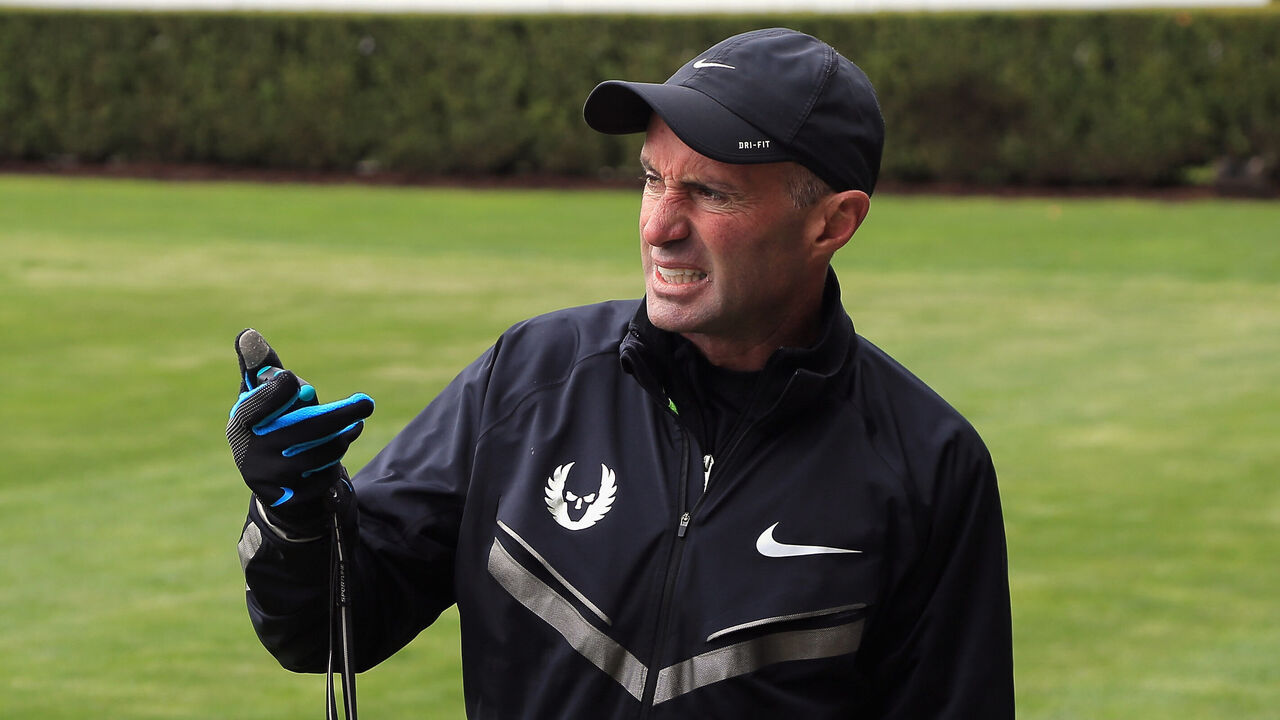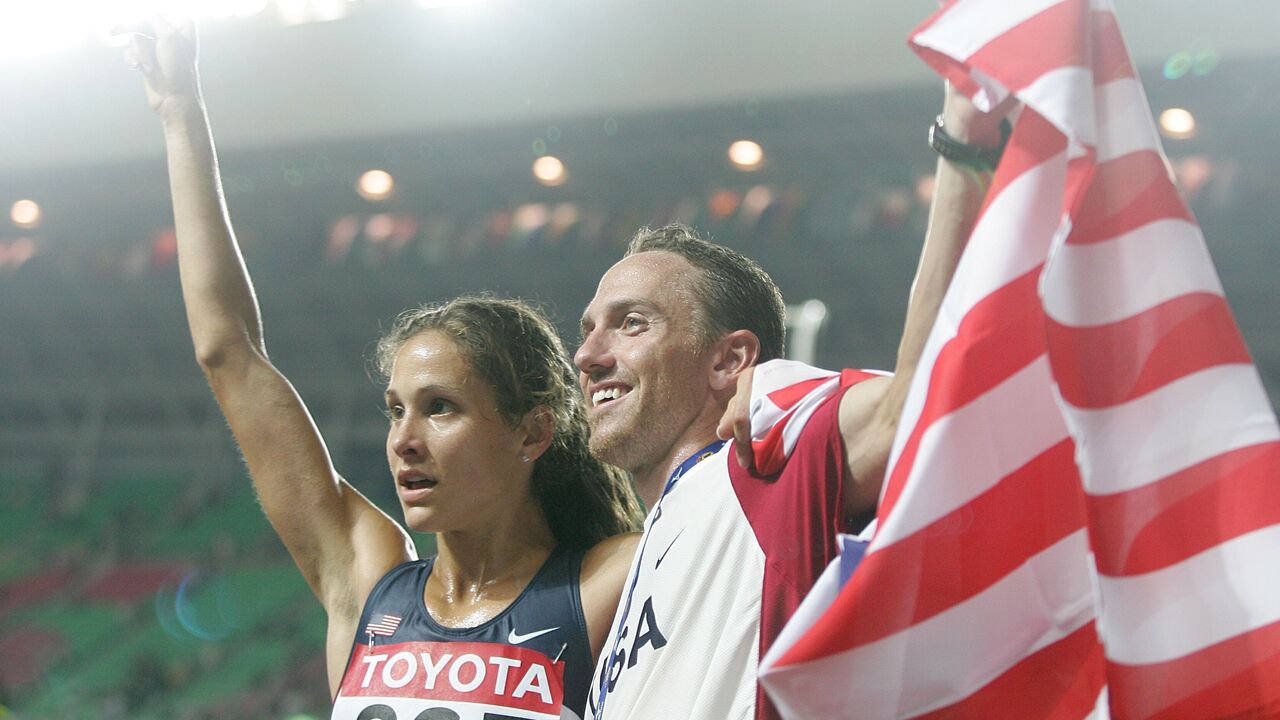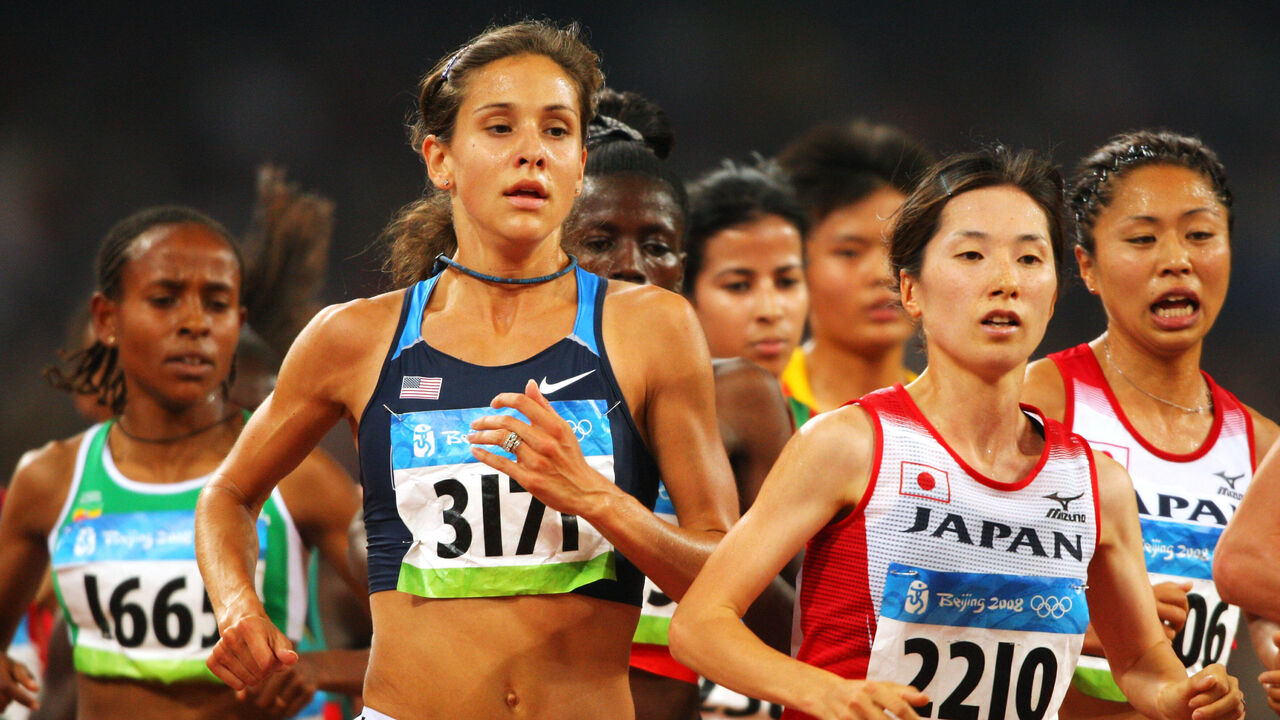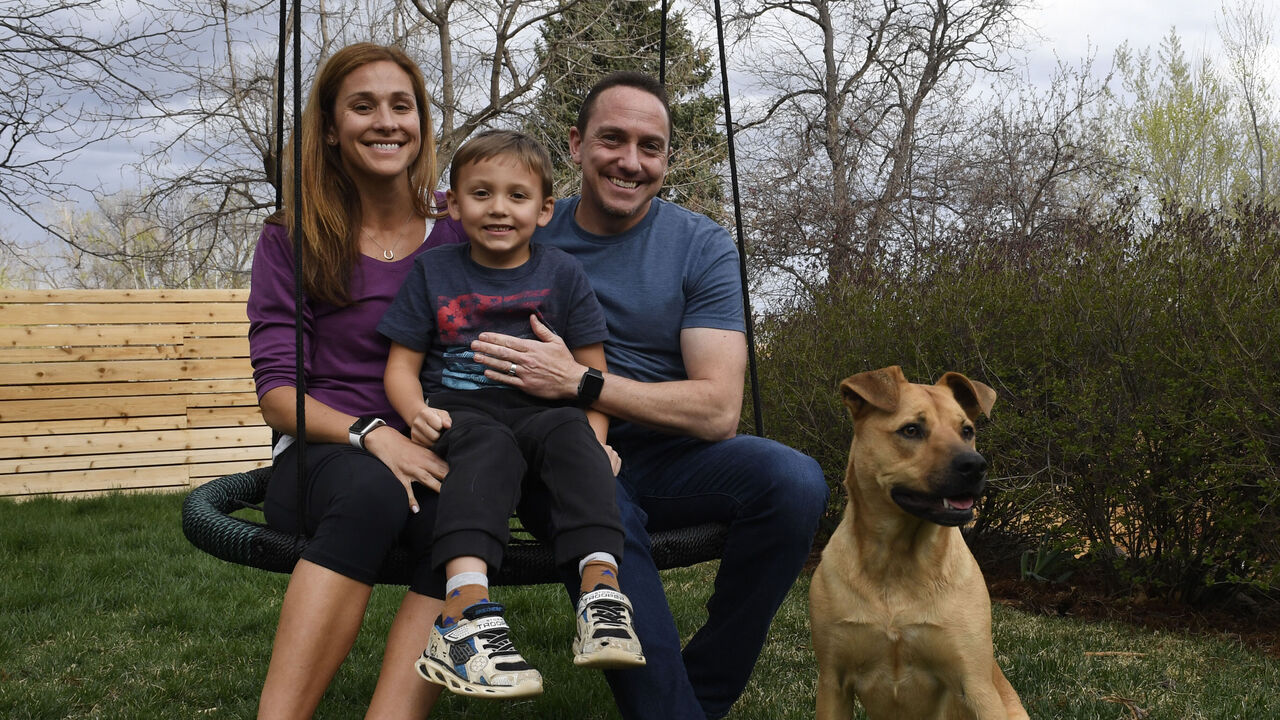How Kara Goucher grappled with telling her family and how they helped her find her way
When Kara Goucher first came forward about the sexual abuse she experienced at the hands of disgraced coach Alberto Salazar, she did it anonymously. As a result of her testimony, Salazar received a lifetime ban from running in 2021. But despite that success, Goucher didn't feel ready at the time to reveal her identity.
More than two years after the ruling, in March 2023, she opened up about her experiences with Salazar in a detailed memoir called "The Longest Race," finally ready to attach her name to the bombshell news that ended Salazar's career and permanently blemished his once legendary legacy.
theScore recently caught up with Goucher to talk about her memoir and her hopes for the future of sport.
theScore: Your book is such a compelling read, with some obviously major revelations about Alberto Salazar. What has the reaction been?
Goucher: I have felt just a sense of peace. If I'm being honest, I just feel like I'm not carrying anything around anymore. It's all out there. I've seen a few negative comments here and there. But in general, I've felt love from people. If I'm being honest, it's been really good. It's been a wonderful experience so far.
When the original, anonymous sexual abuse allegations came out against Salazar, you thought many in the running community would connect the dots that you were the anonymous athlete. But no one did, or at least no one confronted you. Now that people know it's you, has the reception been what you need in this moment?
Goucher: I think what was important for me was to tell these stories so that other people would realize they're not alone and that these things happen, and they don't have to define us. So I've gotten a lot of people reaching out. I was positive that they would tie it to me a year ago, when (The New York Times article with the anonymous allegations) came out. At the time I had a few people reach out and say, "Well, I hope that person has found peace." But I was shocked that it wasn't like, "Well, it's obviously Kara Goucher." I really thought that that was going to happen. So I feel relieved that I finally got to share it, when I got to decide.

You're so close to your family. What was the process of opening up to your mom and your sisters and sharing the truth about what was going on?
Goucher: My sisters would say stuff, like my older sister said something to me the first day Alberto talked about his sex life with me. She said, "Isn't it weird? Don't you feel uncomfortable?" I was actually mad at her. I was like, "What are you talking about? He's so amazing." I remember a little bit of shame because I was a little mad at her.
But I didn't tell them about any of (the abuse). I still have the email (after Alberto tried to kiss Goucher) when I said to them, "I'm so embarrassed, I have so much to tell you. I don't want anyone to see this. So I'm gonna call you on the phone, but I'm so embarrassed with what I've put up with." Really, that was just the beginning.
I gave my mom an advanced copy of the book and that was the most detail she had ever read about it. When I was going to testify against him, I was able to have a safe person. And originally I was going to have my mom. But then I thought, "My mom is going to start crying. I'm going to be worried about her while I'm testifying." So she was not there. I brought someone else instead. I knew that she would just get really upset because she's a normal human being. But yeah, it's just interesting, reliving it all and thinking, "Yeah, it was inappropriate for so long." And I just really excused it. I just did the mental gymnastics to make it work because I cared about him so much. And I believed I was nothing without him.

Can you tell me a little bit about your drive to make an Olympic team, to be the best you could be at running? Where does that come from for you?
Goucher: Some people want to write or do something that actually helps other people. But I think I was always obsessed with the Olympics from a super young age. I didn't know how I was going to get there, but I was going to get there. Then as I discovered running more and more, I thought maybe that was the path. And I really didn't see myself in the people I looked up to until I learned who Lynn Jennings was. This is before the internet. I would have to wait for my sister to get her Sports Illustrated. It was a woman who looked like me, right? She was white. And she was muscular. And I thought that I could see myself in her. And so that is kind of where it was born.
I watched her race and get her bronze medal. I was like, "I want to be like that." But I had no idea what the industry would be like or how you could make it work. So it was just sort of this little dream that never could go away. When I was injured in college, or when I wasn't running well in high school, I would think about quitting. Then I would think, "I can't quit because I haven't given everything I can yet." I literally had a tape that played the Olympics music. I was always obsessed with it. It's hard to describe, I just wanted it so, so badly. I wasn't willing to cross any ethical lines or anything like that to get it, but I was going to make sure that I literally died trying. I was like, "I will do this until it's just so obvious that it's not going to happen." I don't know where it came from. I think I was just wired that way. It got in my brain and then that was it. I could never let it go until it was done.

I can understand why, at the Nike Oregon Project, since Nike controls so much in your sport, it would feel incredibly risky, or even preposterous, to think they weren't the sole reason why you were successful in that time period. Is that kind of how your thinking was in those early days at the Oregon Project?
Goucher: Definitely. And Alberto was so involved in my life. This is the part that's tricky because of course we focus on the red flags throughout the book. But there were a lot of great days. And there were a lot of breakthrough workouts where we're hugging and I'm thinking, "This could happen, this could happen." I had truly believed he was brought into my life because he was the one who was going to take me there. And everything around me was telling me that. Anytime an article was written about me, it wasn't just my name. It was my name and then within a couple words it was his name. I felt like he was the one that made me. That I couldn't do it with anyone else. He was the one. I had to be with him.
What do you think journalists could have asked differently in those situations to get to the truth? They were writing profiles about you. I know in the middle of the abuse, Malcolm Gladwell wrote a profile about Salazar that was glowing. Obviously the research had not been done. Is there a way that someone could have asked the right questions? Or do you think that the truth was so buried that it would have been impossible to get?
Goucher: While I was there, I didn't think anything was wrong. I thought, "This is just how committed he is to everybody. This is just how it works. This is what happens when you're with the best."
When I left (the Oregon Project), I was still a Nike athlete. My family depended on me. My husband no longer had a contract with Nike. But also, nobody said, "Why did you leave?" Nobody asked me that. At Nike, I had been running for over seven years. I tell them I'm going to move to a different coach. Nobody says, "Why?" Nobody asked me why. And so you know, I was afraid to say why. So anyway, there was no way I was gonna say anything at that point. There just was no way.
But I think what was hard was watching Alberto's star rise and people just feeding this machine and seeing all these other people left in the wake like myself, (Team USA athlete) Amy Begley, and other people. There were a bunch of women that were there right after me that all ended up leaving. Just seeing everyone tossed aside, but Alberto just keeps getting higher and higher on the pedestal. It was hard to watch.
I know that even though Mo Farah and Galen Rupp have never been caught doping, you've been outspoken about your suspicions that Alberto was helping them dope. Why do you think he only encouraged you to take unmarked supplements once in your entire time as his athlete, and never expanded beyond that with you?
Goucher: I think that if I wasn't married to Adam (Goucher), that could be my story. But Adam was always there and supporting me, and Adam is very black and white. You do it the right way or you don't do it at all. And I think that was one of the reasons why my marriage was constantly questioned. Adam was the force. And if he hadn't been around there, we probably wouldn't be talking. Perhaps I would have been more successful. I don't know. And, yeah, it's important to say that they deny everything. But I do think there was some sort of feeling it out. And then, you know, they had this big problem, which was Adam.

What are some practical things that we can be doing to make women and men in athletics feel safer?
Goucher: For me, a solution that we can really start with is a third party that is not tied to a shoe company, USA Track and Field, or the U.S. Olympic Committee, and it's basically a safety check. They could come in and you can tell them things in confidence and things that perhaps are worrying you. In my situation, first of all, I was in a different country. Then, I'm alone with (Salazar), and then by the time I get back to the United States I've convinced myself that it wasn't real anyway. If we want our sport to be professional and we want people to be protected then we need to put some money into making sure that's happening and being able to check in on athletes where they know that they are protected and can hold coaches accountable. I don't know that there's a magic solution. But if coaches knew their athletes were going to be talking to independent sources on a regular basis, maybe they think twice.